Are end-of-life photovoltaic and hybrid solar panels recyclable? The answer is a resounding yes. It is possible to recycle 94.7% of a solar panel. The solar panel recycling industry is very well-structured, thus making solar energy one of the least polluting energy sources.
Solar panels have an excellent environmental impact and are handled by means of a technically advanced recycling process.
At DualSun, we have great deal of respect for the environment. That is why we have come up with this article to help you understand how recycling works in the solar industry.
—
SUMMARY
- The solar panel recycling industry is all set
- PV CYCLE, the panel recycling association
- The recycling process of photovoltaic solar panels
- Recycling of hybrid solar panels (DualSun)
The solar panel recycling industry is all set
The photovoltaic panel recycling industry has been around since the explosion of the solar industry 10 years ago. Today the recycling industry is all set from a financial and technical point of view.
It also serves to remind that a solar panel has a minimal environmental impact.
In point of fact, an operating solar panel needs only 1.5 to 2.5 years to “pay back” the energy required to manufacture it. Just 2.5 years in a 30-year service lifespan makes the carbon footprint of a solar installation one of the best among energy production systems, particularly so when compared to the environmental impact of nuclear power, for example.
Rest assured that the cost of recycling the photovoltaic panel is already included in its selling price as part of an eco-tax (short for ecological taxation). This is also the case for household appliances.
Solar panel recycling regulations
In Europe, the first WEEE (Waste Electrical and Electronic Equipment Directive) Directive dates back to January 27, 2003. It was amended in 2003 and in 2008. Since 2012, photovoltaic panels also fall within the scope of this directive.
Since 2014, every EU member state is required to implement national legislation based on this directive: “As of February 2014, the collection and treatment (recycling) of photovoltaic panels is regulated in each EU Member State.”
French and European laws on solar panel recycling
In Europe, the WEEE directive regulates the management of products that have reached the end of their useful life. It requires Producers to comply with national waste management regulations. This notably involves bearing the financial and administrative burden associated with the product management. The Producers are the manufacturers and importers of electronic and electrical equipment.
Thus, in 2014, photovoltaic panel producers encouraged the creation of the PV CYCLE Association, which would allow them to jointly undertake the legal obligation of collection and recycling. Now each producer pays an eco-tax to PV CYCLE, who then handles the recycling process.
PV CYCLE, the panel recycling association
PV CYCLE manages the collection and recycling of photovoltaic solar panels.
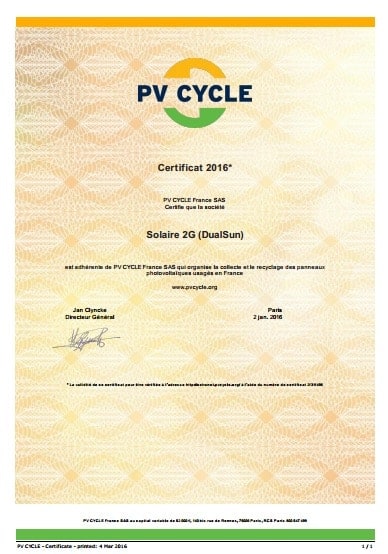
The association was created in 2007 by the European photovoltaic industry. To date, it has handled thousands of tons of photovoltaic waste. It implements the best available techniques to achieve an excellent recycling rate.
Therefore, the environmental impact of solar panels is minimal.
In 2005 we interviewed Jan Clyncke, Director of PV CYCLE and learned all about his views on recycling in the solar industry.
PV CYCLE is busy developing an extensive network of collection points throughout Europe. In France alone there are nearly 50 voluntary collection points. The material is picked up from these collection points and transported to 10 partner recycling plants located in Germany, Italy, Spain, and Belgium.
Financing solar panel recycling through the eco-tax
In order to finance the collection, logistics, and recycling of solar panels, an eco-tax is included in the sale price of each solar panel. There is no profit margin on the eco-tax, which is transferred to PV CYCLE subsequent to the submission of a quarterly declaration stating the number of panels sold.
The eco-tax amount is based on the current cost associated with recycling a photovoltaic panel. All decisions regarding the eco-tax are made by a dedicated committee consisting of various players within the photovoltaic industry.
The eco-tax fee structure varies from one year to the next.The 2020 eco-tax fee structure for France is available on PV CYCLE’S French web page.
The recycling process of photovoltaic solar panels
PV CYCLE distinguishes between silicon photovoltaic modules (such as the ones by DualSun) and non-silicon photovoltaic panels
In fact, silicon solar panels share a similarity with other glass products such as windshields. As a result, PV CYCLE benefits from significant synergies with the glass recycling industry. The process involved in recycling solar panels consists of three main steps.
1. The preparation phase
The first step involves examining the aluminum frames and junction boxes of the used solar panels, then manually removing them.
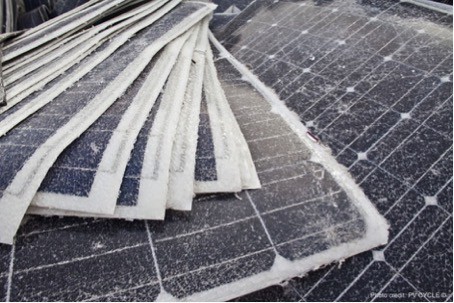
2. Shredding and processing
Thus disassembled, the photovoltaic module is fed into a shredder. Then it is sent down a glass recycling conveyor belt to be manually pre-sorted.
One side is dedicated to the grinding of the laminates and the other to the extraction of the materials.
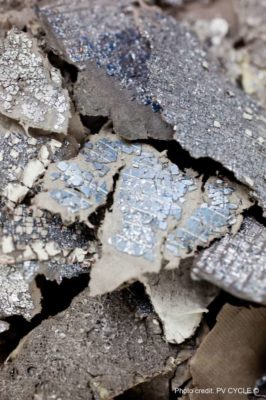
3. Separation and other micro-recycling of simple materials
Here are the main output materials extracted:
- Metals such as aluminum or copper
- Glass
- Silicon particles
- Plastic
The average recycling quota is 94.7%.
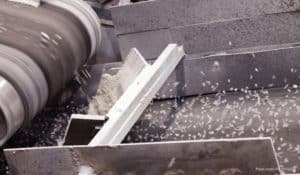
What about the recycled glass from the panel, you may ask? It is combined with standard glass cullet and then used to make fiberglass, insulation, and glass packaging products.
As for the metals and plastic materials, they are used in the production of new raw materials.
Recycling not only salvages resources but also reduces CO2 emissions. For that matter, a report by the German Fraunhofer Institute concluded that recycling one ton of photovoltaic panels spares 1,200 kg of CO2 emissions! That is good news for the photovoltaic carbon footprint.
Recycling of hybrid solar panels (DualSun)
A hybrid solar panel can be recycled just like any other
The DualSun hybrid panel is no exception to the rule. It has a service lifespan of 25 to 30 years. After this long period is up, it is entrusted to PV CYCLE.
Take the heat exchanger as an example. In a DualSun panel, this component is made up of polypropylene (PP), the material that plastic caps are composed of. It is 100% recyclable. On an industrial scale, this material is recycled by various organizations such as Paprec, Veolia, Valorplast…
During end-of-life processing, our polypropylene heat exchangers are crushed into flakes, then washed, rinsed, and wrung out. Afterwards they are dried, sieved, and reclaimed. This combination of steps leads to the creation of reusable granules.
“The composition of the DualSun panel does not pose any particular problem for the recycling process.” Excerpt from the interview with Pia Alina, PV CYCLE’s recycling manager for DualSun panels.
Read our article: The environmental impact of glycol (the liquid present in thermal and hybrid panels)
Few DualSun panels have reached the recycling phase as of yet
To date, we have sent few solar panels to be recycled. After all, our panels will be operating on rooftops for at least another 25 years!
As such, DualSun recycling concerns production waste, test panels used in R&D, and panels which have broken during transport. Such solar panels are sent to a collection point in Aix en Provence.
However, the eco-tax payment that we make on a quarterly basis ensures that the panels will be recycled when they reach the end of their useful life.
All in all, the environmental impact of a solar panel is low when compared to other renewable energies sources. Given that they are 94.7% recyclable, solar panels are an attractive alternative for generating energy cleanly.
MyDualSun allows you to simulate a hybrid solar panel installation based on your needs and your roof and easily estimate the efficiency of your solar panels.
For further reading:
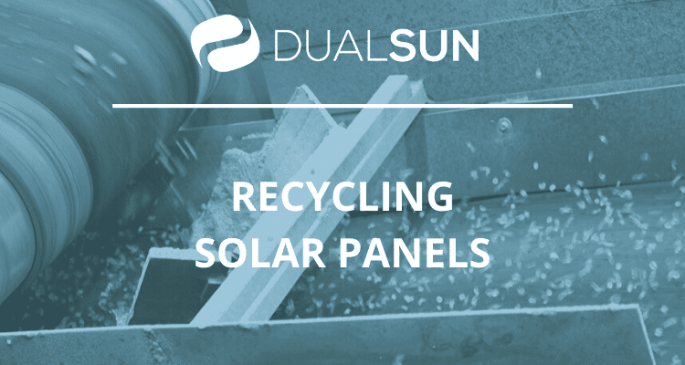
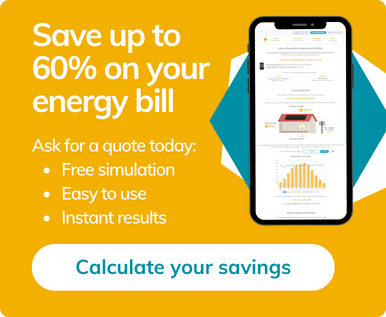
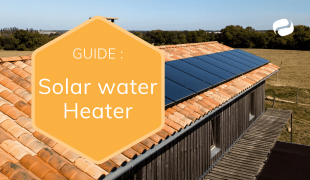
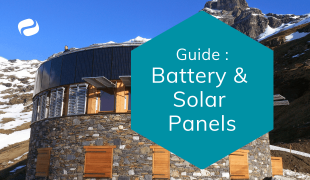
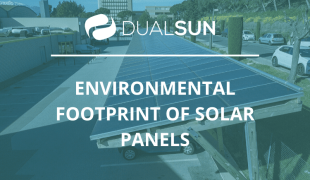
Aucun commentaire.
Leave a comment
Votre adresse e-mail ne sera pas publiée. Les champs obligatoires sont indiqués avec *